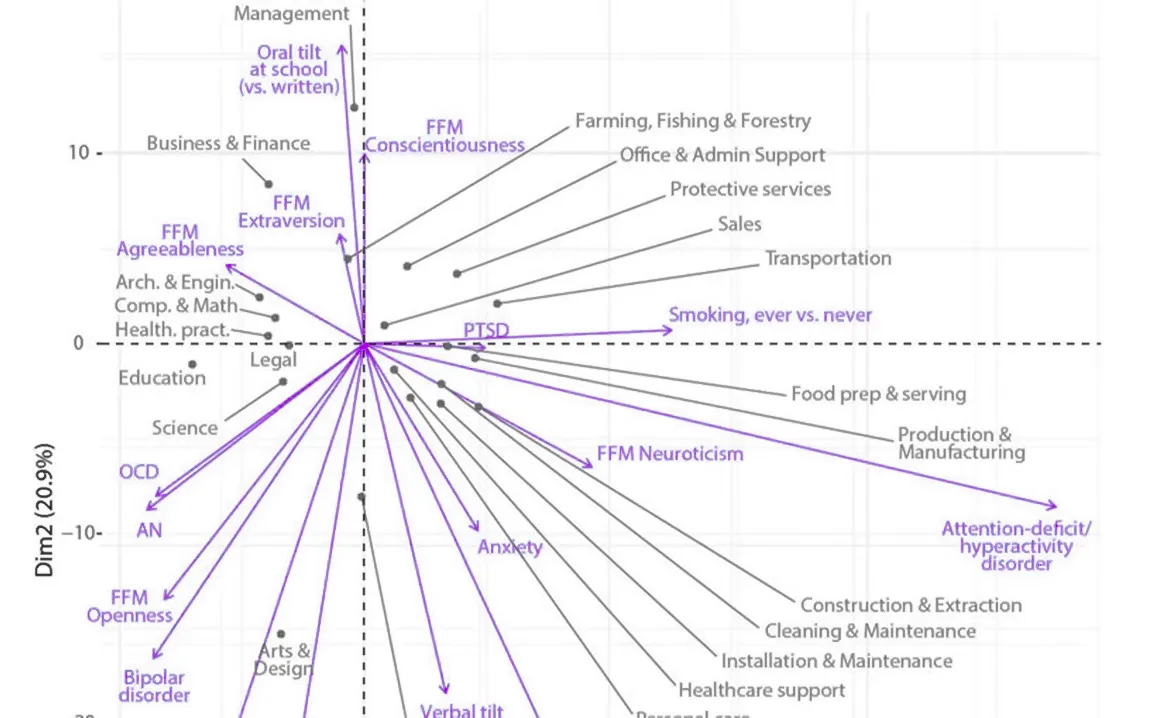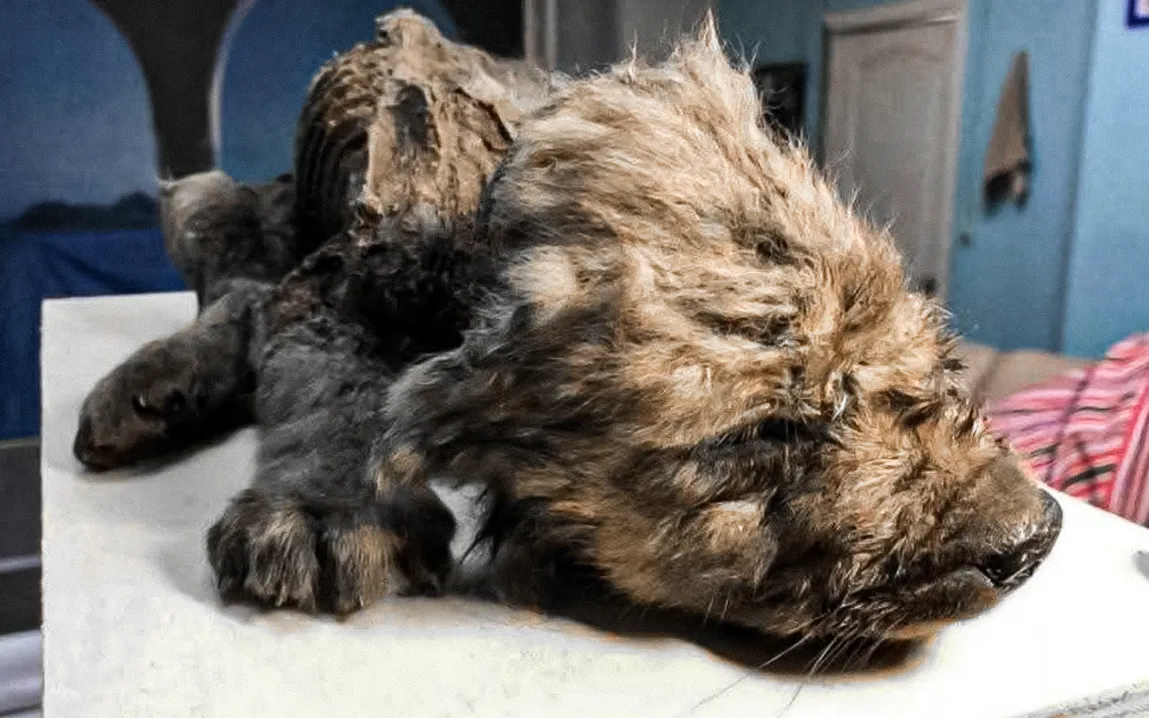Recent scientific studies have opened fascinating views on how our genetic inheritance may inform our career path through the effect on neuropsychiatric traits. This study presents a scientific opportunity at the intersection of biology, behavior, and the workforce to show that certain career tendencies may stem from genetic predispositions. It opens a whole new avenue in understanding the subtle interplay between our natural, or innate, characteristics and the environment we thrive in.
Key Focus of the Study
This study investigated whether genetic markers of neuropsychiatric traits are correlated with career preferences and performance. Neuropsychiatric traits are attributes like risk tolerance, cognitive ability, and emotional resilience that strongly shape workplace behavior and professional success.
This pioneering study employed large-scale genetic data combined with occupational information to identify patterns of association between certain traits and specific careers. The overarching aim was to determine whether individuals are drawn to certain professions based on innate genetic predispositions.
The Role of Neuropsychiatric Traits in Career Choices
Neuropsychiatric traits, which influence cognitive and emotional processes, often play a subtle but significant role in career decisions. For instance, individuals with a genetic predisposition toward heightened risk tolerance may be more inclined to pursue entrepreneurial roles or professions requiring high-stakes decision-making. Conversely, those with a natural inclination for detail-oriented tasks might excel in professions such as accounting, research, or engineering.
These traits will make a mark when considering potential risks in one’s chosen career:
- Risk-Taking Behaviour
Researchers found genetic susceptibility to risk taking to correspond well with the chosen careers that often involve finance, entrepreneurship, or emergency response roles. This risk-taking characteristic endows one with the much-needed confidence and faster decision-making processes required to carry out one’s duties within intense situations.
- Cognitive Flexibility
The ability to think creatively and solve problems has been associated with genetic markers of cognitive adaptability in professions that include technology, design, and marketing.
- Emotional Resilience
Genetic predispositions to emotional stability have been linked to success in professions characterized by high stress, such as healthcare, military service, and law enforcement, where the ability to manage stress is an integral part of the job.
- Attention to Detail
Genetic traits that correlate with high levels of concentration and thoroughness were strongly represented in jobs such as scientific research, data analysis, and quality control.
Career Paths and Genetic Overlap
The study shows one of the most compelling insights: it was found to be highly significant, with significant genetic overlap seen between individuals doing the same jobs. For example, engineers and data scientists possessed markers related to analytical thinking and precision, and artists in fields like music and writing had genes linked to creativity and divergent thinking.
Interestingly, the research also underscored that genetic predisposition is not deterministic. While genetics may provide a foundation, environmental factors, education, and personal experiences play equally critical roles in shaping an individual’s career trajectory.
Implications for Workplace Diversity and Recruitment
The study raises intriguing questions about how employers and organizations approach recruitment and workforce diversity. If genetic predispositions influence certain career inclinations, it becomes vital to ensure that workplace policies are inclusive and provide opportunities for individuals with diverse neuropsychiatric traits.
For instance, jobs that were previously dominated by people with particular genetic characteristics could be enriched by the inclusion of people with different predispositions. Diversity of thought could lead to novel solutions and a more vibrant culture at work.
Ethical Considerations in Genetic Research
The discovery is revolutionary, but it raises several ethical questions. Genetic data might be misused in hiring practices or career counseling, thus causing discrimination or stigmatization. There is a need for effective policies that would ensure genetic research is conducted responsibly and ethically, thus safeguarding the rights of individuals to privacy and equal opportunity.
Further, the research underlines that focus should be placed on potential rather than predisposition. While genetic markers can reveal tendencies, they cannot account for individual determination, passion, and the ability to overcome challenges.
Future of Career Development
The study opens new avenues for personalized career counseling and talent management. By understanding how genetic predispositions influence traits such as decision-making, creativity, and resilience, individuals and organizations can make more informed choices. For example:
- Individuals could use this knowledge to identify careers where they are most likely to thrive and derive satisfaction.
- Organizations could also make use of the insight into neuropsychiatric traits to design work environments that are more supportive and tailor training programs to maximize the potential of employees.
However, it’s critical to balance these advances with ethical concerns. No one should be limited by a genetic label or a predetermined expectation.
A Career Success Holistic Approach
Though the study puts forward a genetic aspect for career choice, it does stress the fact that success is multifaceted in its nature. While genetics can provide a predisposition, factors such as education, mentorship, and hard work eventually bring professional achievements to a successful outcome.
Research serves as a reminder that human potential is dynamic. By embracing the natural predispositions and opportunities to grow around us, we may find fulfillment in careers that line up with our unique strengths and aspirations.
Final Thoughts
This pioneering research brings a fresh view to the issue of how genetic predispositions impact careers, shining a light on complex relationships between biology and work life. The intersection of genetics, psychology, and career development in society necessitates sensitivity to ethics as it capitalizes on these understandings to promote more empowered and inclusive workplaces.
It’s a discovery not just to better know the potential of man but also an indicator of how intricately involved is the concept of nature versus nurture. Thus, through the integration of both, it shall set up the opportunity for every human to become proficient in whatever they are set out to pursue as careers.



